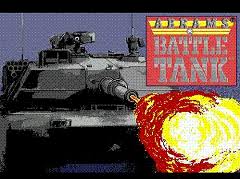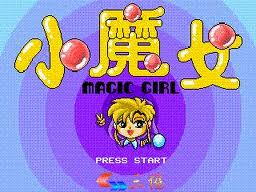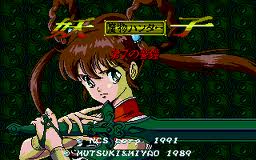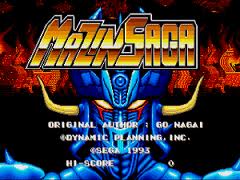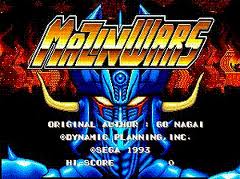Menu
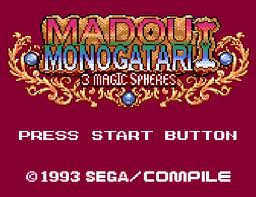
Madou Monogatari
Madou Monogatari (魔導物語, Madō Monogatari; translates as "Story of Sorcery") is a series of first-person dungeon crawler RRead more
Madou Monogatari (魔導物語, Madō Monogatari; translates as "Story of Sorcery") is a series of first-person dungeon crawler RPGs by Compile. The first game was released in 1989 for MSX and NEC PC-9801. The characters of this series would later be used in the puzzle game Puyo Puyo.
Ssega
2015-02-20 23:29:47
18.8k










Madou Monogatari
Magic Girl
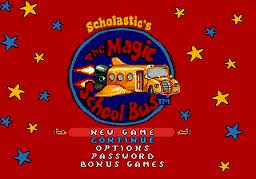
Magic School Bus
Magic School Bus may refer to:
The Magic School Bus, a series of educational children's books
The Magic School Bus (TV Read more
Magic School Bus may refer to:
The Magic School Bus, a series of educational children's books
The Magic School Bus (TV series), a television series based on the books
The bus used on the infamous 1964 road trip by Ken Kesey and Merry Pranksters
Ssega
2015-02-20 23:29:14
38.3k










Magic School Bus
Mamono Hunter Yohko - Ma...

Mario & Battle City
A port of Super Mario & Battle City for NES ported to SEGA Genesis/Mega Drive by krikzz.
Ssega
2015-06-21 19:24:12
65.7k










Mario & Battle City
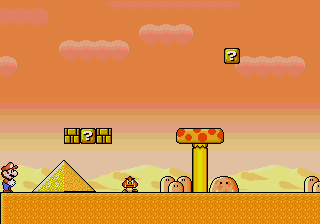
Mario 3: Around the ...
Mario 3: Around the World is a bootleg in Russian language.
Ssega
2015-12-06 20:23:16
144.5k










Mario 3: Around the Worl...
Markos Magic Football
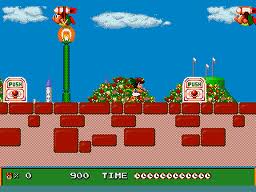
Marvel Land
Marvel Land (マーベルランド?) is a platform arcade game released by Namco in 1989.
Ssega
2015-02-20 23:29:14
75.5k










Marvel Land
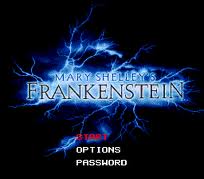
Mary Shelley's Frank...
Mary Shelley (née Mary Wollstonecraft Godwin; 30 August 1797 – 1 February 1851) was an English novelist, short story wriRead more
Mary Shelley (née Mary Wollstonecraft Godwin; 30 August 1797 – 1 February 1851) was an English novelist, short story writer, dramatist, essayist, biographer, and travel writer, best known for her Gothic novel Frankenstein: or, The Modern Prometheus (1818). She also edited and promoted the works of her husband, the Romantic poet and philosopher Percy Bysshe Shelley. Her father was the political philosopher William Godwin, and her mother was the philosopher and feminist Mary Wollstonecraft.
Mary Godwin's mother died when she was eleven days old; afterwards, she and her older half-sister, Fanny Imlay, were raised by her father. When Mary was four, Godwin married his neighbour, Mary Jane Clairmont. Godwin provided his daughter with a rich, if informal, education, encouraging her to adhere to his liberal political theories. In 1814, Mary Godwin began a romantic relationship with one of her father’s political followers, the married Percy Bysshe Shelley. Together with Mary's stepsister, Claire Clairmont, they left for France and travelled through Europe; upon their return to England, Mary was pregnant with Percy's child. Over the next two years, she and Percy faced ostracism, constant debt, and the death of their prematurely born daughter. They married in late 1816 after the suicide of Percy Shelley's first wife, Harriet.
In 1816, the couple famously spent a summer with Lord Byron, John William Polidori, and Claire Clairmont near Geneva, Switzerland, where Mary conceived the idea for her novel Frankenstein. The Shelleys left Britain in 1818 for Italy, where their second and third children died before Mary Shelley gave birth to her last and only surviving child, Percy Florence. In 1822, her husband drowned when his sailing boat sank during a storm near Viareggio. A year later, Mary Shelley returned to England and from then on devoted herself to the upbringing of her son and a career as a professional author. The last decade of her life was dogged by illness, probably caused by the brain tumour that was to kill her at the age of 53.
Until the 1970s, Mary Shelley was known mainly for her efforts to publish Percy Shelley's works and for her novel Frankenstein, which remains widely read and has inspired many theatrical and film adaptations. Recent scholarship has yielded a more comprehensive view of Mary Shelley’s achievements. Scholars have shown increasing interest in her literary output, particularly in her novels, which include the historical novels Valperga (1823) and Perkin Warbeck (1830), the apocalyptic novel The Last Man (1826), and her final two novels, Lodore (1835) and Falkner (1837). Studies of her lesser-known works such as the travel book Rambles in Germany and Italy (1844) and the biographical articles for Dionysius Lardner's Cabinet Cyclopaedia (1829–46) support the growing view that Mary Shelley remained a political radical throughout her life. Mary Shelley's works often argue that cooperation and sympathy, particularly as practised by women in the family, were the ways to reform civil society. This view was a direct challenge to the individualistic Romantic ethos promoted by Percy Shelley and the Enlightenment political theories articulated by her father, William Godwin.
Ssega
2015-02-20 23:29:14
22.5k












